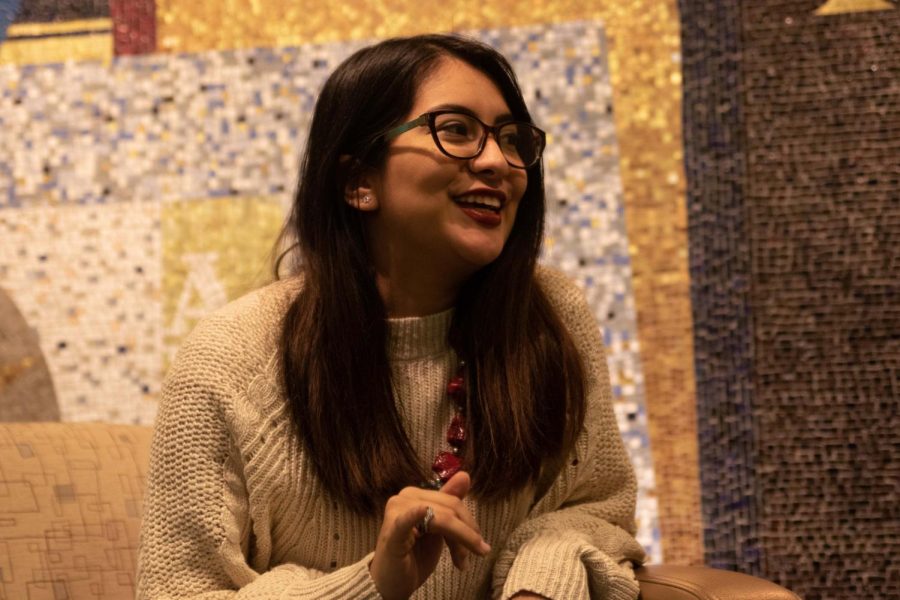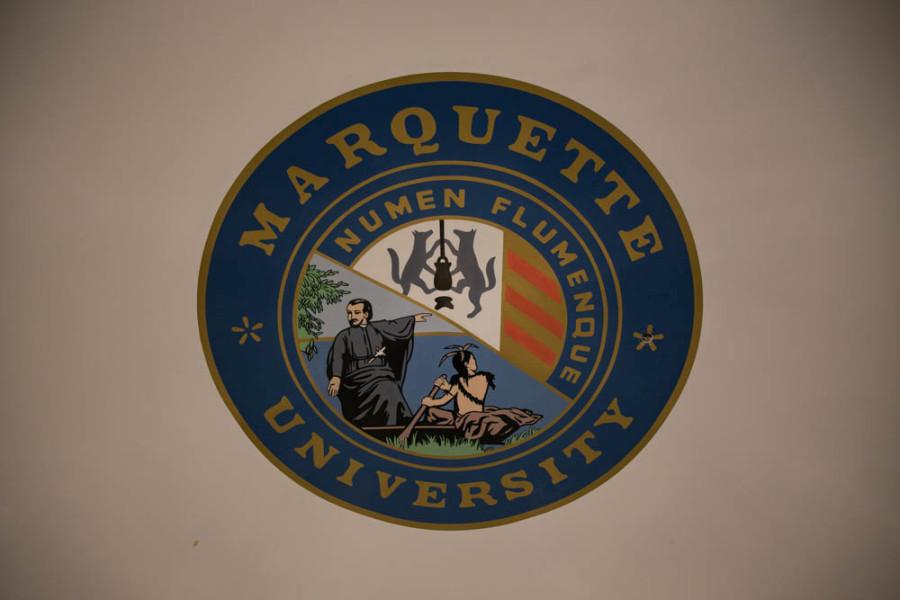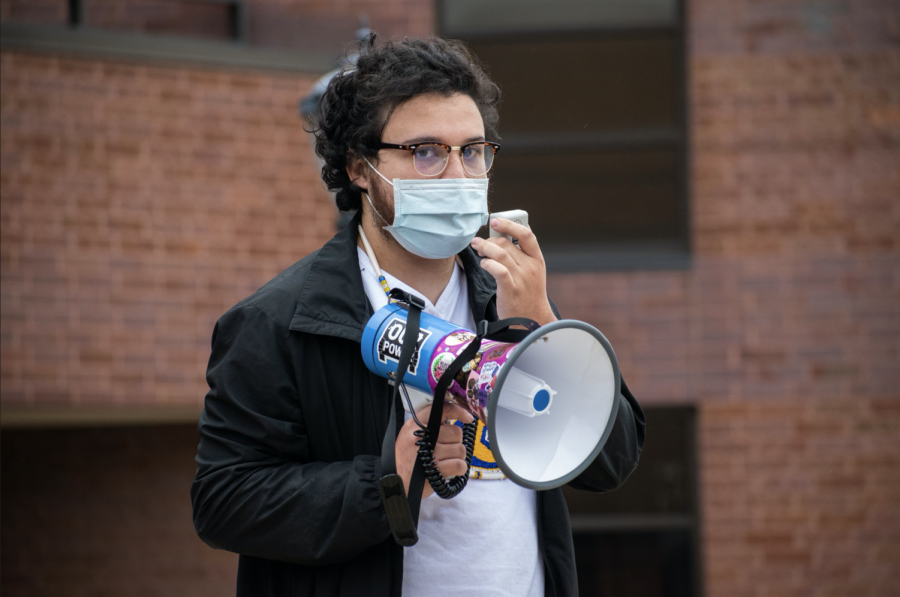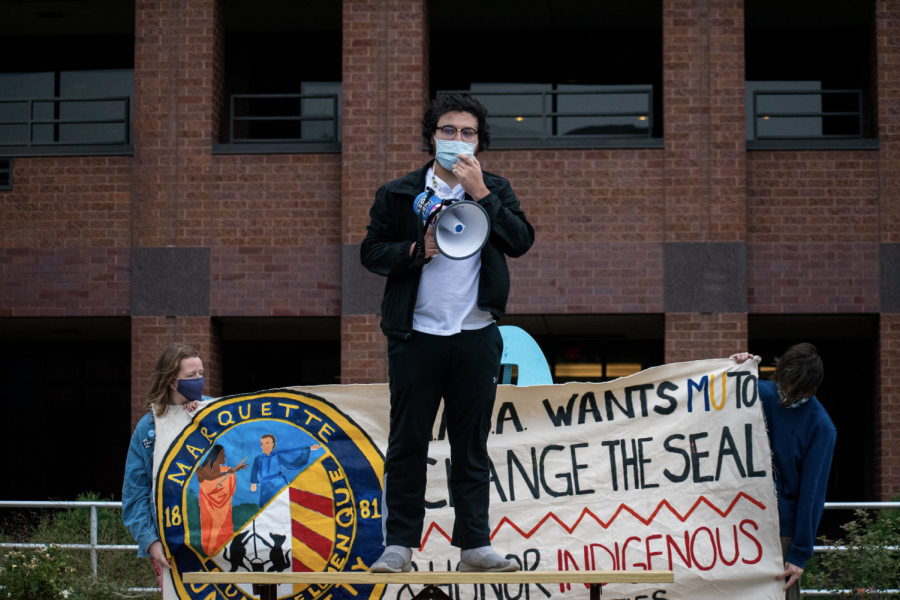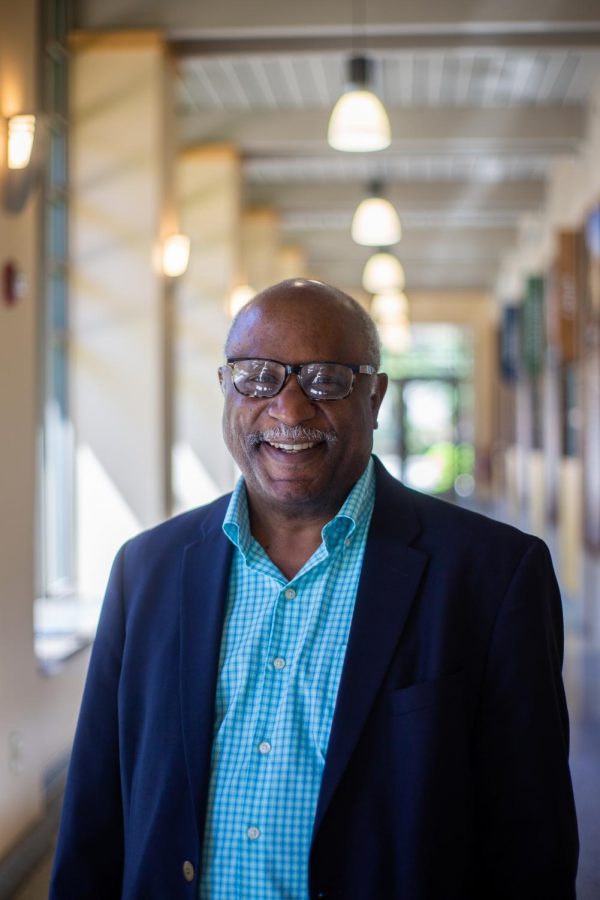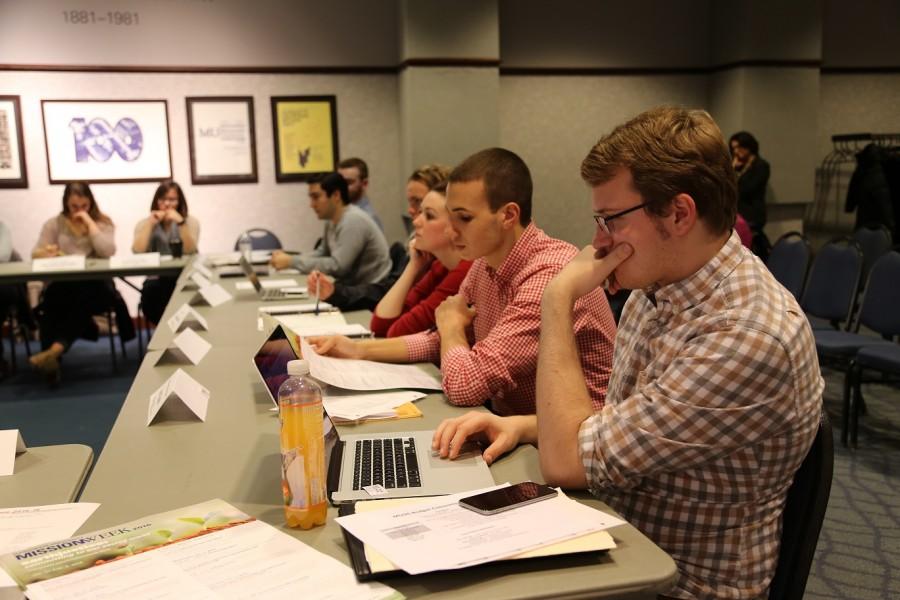The Native American Student Association of Marquette held an event Sunday to educate the Marquette community about Native American traditions, said Aleah Ibarra, a junior in the College of Communication and co-president of NASA.
This event followed the incident that transpired at the Lincoln Memorial during the Indigenous People’s March and the March for Life, when a group of Catholic high school students surrounded and appeared to mock a Native American elder, said Alex Liberato, a sophomore in the College of Business Administration and co-president of NASA.
At NASA’s event, the university community and NASA’s alumni network came together to enjoy lunch and hear Mark Denning, a Native elder, discuss traditions, Liberato said.
Liberato said the first step to change is education. He said respect stems from understanding others at a basic level.
“I think the best thing that could have prevented (what happened in Washington D.C.) is to just be educated about Native American topics,” Liberato said. “I think Marquette has done a very great job of this.”
Liberato said Marquette has a strong history of respecting Native Americans.
Until July 1994, the university’s mascot was the Warriors. It was then changed to the Golden Eagles because Warriors was disrespectful to Native Americans, Liberato said. He said the change was a controversial move, and a lot of alumni stopped supporting Marquette.
Liberato said Catholic schools get a bad reputation from people who misrepresent their values, but Marquette stood strong.
“All across the campus we have people who support us, and even though those boys are Catholic, (it) doesn’t mean that has to be the narrative of all Catholics,” Liberato said.
Liberato said the Marquette administration is currently in the process of hiring a Native American literature professor. Native American students are helping with the process, Liberato said.
Jacqueline Schram, director of public affairs and special assistant for Native American affairs, said she is seeing many positive changes occur on campus to increase diversity.
“As an Anishinaabekwe (First Nations woman) and co-advisor to NASA, it is my passion to provide holistic support to our students, whether that be academically, physically, socially or spiritually,” Schram said in an email. “When issues from outside our campus make their way into our students’ daily lives, I stand vigil for any needs the NASA group may have to unpack their feelings and help them assess what we can do to make sure all our other student members feel supported.”
Marquette University Student Government is making efforts to support Native Americans on campus as well, MUSG President Meredith Gillespie said.
“We plan to use the power we have as student leaders to lift up students who have been disenfranchised on account of their identity,” Gillespie said. “We believe one of the most powerful tools to counteract racism and disrespect in our own community is education.”
Gillespie said MUSG has been focused on initiatives to further institutionalize ways for students to learn and have these conversations.
MUSG passed legislation in December to implement Implicit Bias Training during their required Student Organization Funding Training, Gillespie said.
Ibarra said many people on Marquette’s campus are very open to wanting to learn more about others.
“Even to this day, I walk to a class and I’m like, ‘Ok. Someone in there either doesn’t know that Native Americans exist, someone in there grew up in a very non-cultural bubble and some people are very open to these things and they love to talk about these things,” Ibarra said. “You never know what you’re going to get.”
She said people like the Catholic boys in the video may not have opportunities to be around people of different cultures.
“If these kids would have known or understood how important this song was and the symbolism of why indigenous people were marching that day, and what their Tomahawk chop even means, I think that this would have been a much more respectful encounter,” Liberato said.
Ibarra said the boys are high school kids. Everybody makes mistakes at that time, she said.
“The only difference (between me and the boys) is that my mistakes weren’t filmed and I wasn’t in the middle of a very politically heated moment,” Ibarra said.
Ibarra said she thinks the boys who disrespected the Native elder still have a lot of time to mature.
She said she hopes the younger generation will be more open-minded to making positive change.
“I am Apache Nation and Comanche Nation, very proud to be so. But I am also Polish and Mexican,” Ibarra said.
Ibarra faces challenges from being multiethnic. She said that she tries to be extra aware of different worldviews because she is a melting pot of many cultures.
“It’s very, very different being half Native American and half something else because you want to be either one or the other,” Ibarra said. “Either you’re too Native for the other, or too other for the Native. It’s hard because not everyone agrees with my thoughts or the fact that I am on no specific side.”
Liberato, who is of Navajo descent, said that with more than 300 federally recognized tribes, Native Americans are very diverse.
“(The Navajos) are not how the public sees Native Americans,” Liberato said. “We don’t live in teepees and run around chasing buffalo. We never did.”
He said the Navajos were traditionally sedentary people who lived in permanent housing and raised livestock.
“We have our own specific art forms, music forms, dances and that’s to be said for every tribe,” Liberato said. “Every tribe has their own traditions, their own history and it’s something that should be recognized.”
Liberato said when it comes to times like this, he wants to focus on the positive and honoring Native American traditions.
He said he hopes to do that by continuing to hold NASA meetings and growing the association’s influence.
He said NASA is very inclusive, and welcomes all people, especially non-Natives.
“We are majority non-Native,” Liberato said. “Our goal is not just to support Native students, but share our rich culture and heritage with all students on campus, and we want to make it known that we are here for everybody.”
Liberato said he doesn’t think society will regress from the incident. It will continue to move in a positive direction, he said.
“I think we’ll come back stronger and at the end of the day, we all know what’s right and wrong,” Liberato said.

